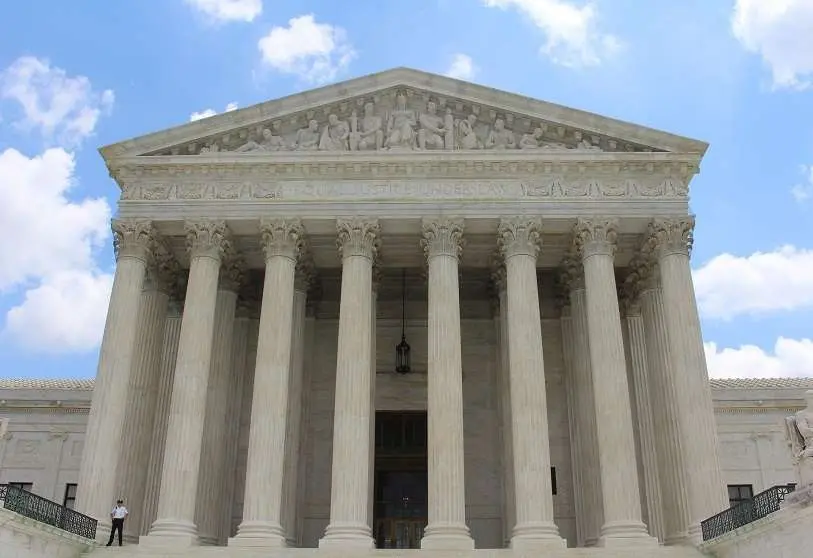US constitutional right to abortion under review

The Supreme Court of the United States, in rulings in 1973 and 1992, enshrined abortion as "a constitutional right". These are the cases known as Roe and Casey, in reference to the two cases in which the claimants sought the repeal of the laws under which they had been convicted for having voluntarily terminated their pregnancies.
The first of the cases, Roe v. Wade, was a landmark case in the history of the country, and consequently opened the way for the abortion debate to become widespread throughout the world, leading to its cascading decriminalisation, generally on grounds of "non-viability" or "irreversible malformation" of the foetus.
The justices of the US Supreme Court decreed at that time, 22 January 1973, that abortion was a constitutional right, although they specified that this right could be exercised up to the limit of exactly one trimester, as this was considered the period after which the foetus could be viable, i.e. have a chance of survival outside the womb. The 1992 Planned Parenthood v. Casey ruling prohibited states from imposing an undue burden, and gave them the power to restrict abortions for pregnancies that endanger the life or health of the woman, among other reasons.
Since then, debate has raged in each of the fifty states that make up the United States and around the world. It has been and is without doubt one of the main ideological elements of the clash between the most liberal and the most conservative sectors of society, and even in countries such as Spain it has come to be associated with being right-wing or left-wing, respectively, with opposing or demanding the so-called "voluntary interruption of pregnancy" as a right.
Well, it seems that in these times nothing is immutable or definitively acquired. What was once a crime, was decriminalised and then became a right, a constitutional right no less, could cease to be so, at least in the United States. This is because the Mississippi Attorney General's Office has filed an appeal with the highest judicial body in the United States, which has already agreed to hear the case, to overturn the "constitutionality of the right to abortion". The southern state's appellant, Lynn Fitch, argues in her brief that the grounds and justifications for the abortion rights ruling were "outrageously erroneous", and that the obvious lack of merit in the rulings is sufficient grounds for overturning them.
Both a lower and appellate court had rejected Lynn Fitch's appeal. The fact that the Supreme Court has accepted it, on the other hand, is interpreted as a first sign that it could modify, even partially, the consideration of abortion as a constitutional right.
The political and social clash is thus served and the debates promise to be more than lively not only in the American political arena but also to spread throughout the world, and to be wielded once again as a political weapon of confrontation between parties and social groups. The first hot reaction to the Supreme Court's acceptance of this re-examination has come from the state of Mississippi itself. There, Nancy Northup, president of the powerful pro-choice Center for Reproductive Rights, called the appeal to the Supreme Court "abhorrent", accusing it of "trying to take away our right to control our own bodies and our future, not just in Mississippi but all over the world".
Other, no less visceral, reactions are more focused on the current composition of the Supreme Court, after former President Donald Trump achieved the record of appointing three justices in his four years in office, which, according to the usual simplification, divides the high court into six conservatives versus three progressives. This presupposes that the former will prevail over the latter and thus overturn abortion, at least as a constitutional right.


